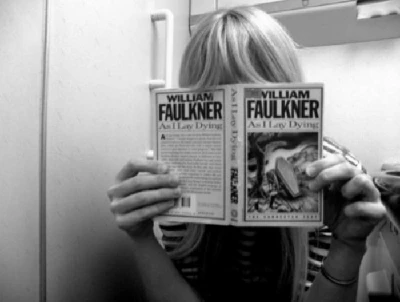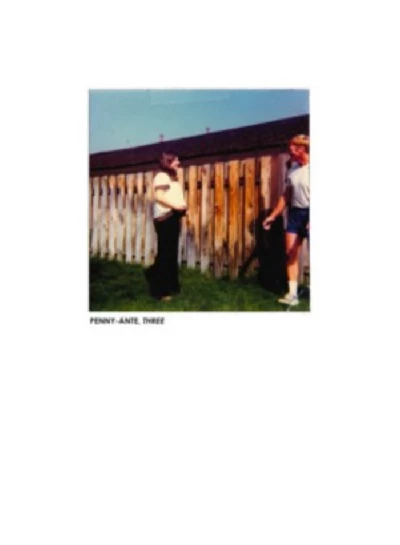published: 28 /
7 /
2009

Penny-Ante is an independent Los Angeles-based arts publication, which is published annually and is soon to release its third edition. John Clarkson speaks to its editor Rebekah Why about her unusual publication which combines together music, journalism and art
Article
Penny-Ante is an independent Los Angeles-based arts publication, which is published annually.
A completely DIY venture with its design and packaging as well as publicity all done in-house, Penny-Ante says about itself that "by bringing artists, writers, musicians, bands, performance artists, journalists, independent adventurists, poets (and the like) together into one forum, we hope to encourage our readers to explore all areas of the arts and realize how in many cases, all are linked."
Its latest edition, 'Penny-Ante, Three', will come out in September, and, like its predecessors, runs to over three hundred pages and is printed in colour on high-grade quality paper.
A massive collection of interviews, artwork, poetry, short stories, published conversations, autobiographical writings and extensive essays, highlights of 'Penny-Ante, Three' includes interviews with musicians such as Guided by Voices' Robert Pollard, Billy Bragg and Fugazi's Ian Mackaye. There are poems from Sonic Youth's Thurston Moore, Billy Childish and the Cleaners from Venus' Martin Newell ; a story from the Deviants' Mick Farren and art work from Childish again, Mission of Burma's Roger Miller, Dead Meadow's Stephen McCarty and Hole and Mazzy Star's Jill Emery as well as both established and cult artists such as Julian Hoeber, Dawn Kasper and Steve Vanoni.
The first two thousand copies of 'Penny-Ante Three' will appear with a CD, which includes tracks from Pollard and Childish as well as some of the acts, who appear on Penny-Ante editor-in-chief Rebekah Why's record label, Gifted Children.
In an interview with Pennyblackmusic, Rebekah Why talked about 'Penny Ante, Three' and why unusually for a publication of its size it is published entirely without adverts.
PB: Penny-Ante has been described as both an annual book and a magazine. What do you see it as?
RW: I see each issue of Penny-Ante as a volume in a series of books. Each release is a collection, accumulating a wide range of artists, writers, and musicians. We haven’t done the best job living up to the “annual” title.
PB: Penny Ante is a DIY publication. Everything in it is admirably done in-house. There are no paid adverts in it. The few other publications of this size tend to rely on adverts. How do you manage to survive without them? Why have you made it policy to avoid them?
RW: Without advertisements, we barely survive. Our one goal is to just make enough back to pay for, or most of, the next issue, which we’ve succeeded at… Albeit a lot of hard work and gathering donation. It’s not necessarily that we’re avoiding adverts… it’s that we haven’t yet figured a way to work it into our system without having some distinct qualms about it.
Here’s an example of how the advertising and magazine world can suck: In 2007, myself and some others started a label called Gifted Children and we had two releases we were starting with. We sent one of these albums, a debut album from an artist, to a pretty “major” magazine just for the hell of it, and to our dismay this particular magazine actually wrote us saying they loved the album, thought it was brilliant, and wanted to feature the band as, you know, “a hot shit new artist,” etcetera, etcetera. They even had us send an album out and “high res photos” to a particular writer, which in my world, means you’re on board.
We couldn’t have been happier. We told the band, they couldn’t have been happier. I mean, it was a real luck of the draw… normally such a magazine would not have even opened our package, and being a small start-up label, we were pretty excited…. You know, this was big to us. Anyway, time passed and we’re waiting for this feature… An issue came out, then another, no feature.
I wrote them asking, in a very polite way, what happened: No response, for weeks. Then an email pops up in my inbox from the editor… I’m thinking, great, some explanation… What is it? A mass email about their advertising rates and how they can “blow up” our label if we place an ad… And believe me, that one email was the first of many. Despite removing myself from their email list, they still continue to harass us with advertising deals, and “If you give us $500 we’ll feature one of your artists on our CD.” Which totally blows my mind... So, anyone with $500 can be on your CD? Wow, imagine how shitty that CD is, you know?
And it’s not that I have a serious disdain for these people or magazines that work this way. They’re just trying to survive, and probably are… more so than Penny-Ante, but I, myself, have a real problem with Penny-Ante begging for money from entities that, one, we’ve never supported in the past: Not for any real reason other than just not being aware of who they are, and second, because I know if I was collecting money from labels or galleries, I would feel a moral obligation to feature them or their artists, and that’s an obligation I don’t want.
I worked for a PR firm for two weeks. I was pitching these luxury products to Conde Nast publications who were basically coming at me with, “If you advertise with us, we will feature your product.” It kind of makes you wonder about the editors… like, do you guys have any opinion on anything? Anything you get excited about? Or are you just forced to write about brands who support you?
It’s a weird, kind of twisted world… but like I said, I understand magazines needing to survive and pay writer’s salaries. Writers should, and need to be paid… It’s just this weird Catch 22 for me. Until we find a way to advertise that allows myself to sleep at night, we’ll continue to work off donation and book sales.
PB: Penny-Ante has pieces of writing from and interviews with not just bands, but also authors, photographers, artists and cartoonists. What is your policy with deciding who is going to appear in each edition? Do you just tend to write about what you want to write about?
RW: There’s no real policy, and yes, we only feature people we desire to have a part… Apart from featuring things we already know about, there are moments that we work through word of mouth. For instance, when I visited Julian Hoeber in studio to take his photo, he told me that he thought Penny-Ante might enjoy Dawn Kasper’s work, and he was spot on. Writer and contributor, Evan George brought in Andrew Pogany, who ended up contributing some of his poetry… Andrew then forwarded Larry Fondation to us.
I’d say about fifteen percent of the contributors come to us in this way... There is this domino effect, which is nice, because it creates this sort of “six degrees of separation” between all the contributors within the collection… A sense of community on paper if possible.
PB: Why do publish it annually rather than more often, but with less pages?
RW: Well, as I said, we’re not a magazine. There’s no sense of urgency to get a collection out because there’s no real news, opinion, album review, or editorial features included. We do include interviews, but the questions we ask are pretty general in order to not date the book.
Plus, it takes about seven months to get one of these books together, so once a year is about all we can do. We are however entertaining the idea of doing a series of two or three concept driven books, shorter in length, similar in concept that may all see release within one year, perhaps next… Whether it happens or not depends on a lot of different factors, funding being at the top of that list.
PB: In the past you have allowed five or six non-profit organisations to promote themselves and their causes in each book/magazine. You have now decided to dispense with this idea and instead to give a part of your profits to a Chicago-based organisation called Arts of Life. Why the change of policy and why as a Los Angeles-based magazine have you decided to sponsor a Chicago-based company rather than one nearer to home?
RW: I think we just felt it was time to give a bit more. You never know what kind of influence a two page feature has on a reader... I mean, I sincerely hope that in the past we turned on a few readers to the nonprofits we featured… and that someone actually took a step to help, but by casting the responsibility on ourselves, we have more control over the progress.
Concerning Arts of Life… I think what they’re doing is great and I trust that when we do finally get the chance to write them a check, that the money will go in the right place. The art director there is someone who I’ve worked with closely beyond his work at Arts of Life, who I trust one hundred percent.
We had a lengthy talk about what they need, why they need it, and what’s been missing from their program. He’s passionate about their mission, and I have no reason to doubt any money we give them will go to anything else other than bettering the program for their artists.
PB: There is a free CD for the first 2000 people who buy Penny-Ante 3. Is the first time that you have done a CD. Why have you decided to do a CD? Is it just to give a voice to some of the artists you are representing in the book?
RW: Sure. I think in some ways it’s our attempt at exposing the lesser known artists and to really give them a proper introduction to the reader (if it is an introduction). You know, take something like Mikey Turner (previously of Warmer Milks)’s AIM conversation with Irene Moon he contributed… Yeah, it’s funny as hell, but would a reader know that the dude is one of today’s most underrated noise makers? Nope….
But honestly, I think I’m making this way too heavy for the interview’s sake. Really it just came down to, “Why don't we do a CD?” and it was a unanimous: “Fuck yeah.”
PB: Thank you.
Picture Gallery:-

Visitor Comments:-
|
|
215 Posted By: jill emery, california usa on 07 Sep 2009 |
after reading this interview, i hear the same voice of rebekah why that i dealt with, as a contributer to penny-ante 3. im slightly removed from a scene and was even nervous and hesitant, but they were down to earth fantastic, i even went to the opening show for the book,which sounds easy but again since my music days i just feel more introverted and feel happy just doing paintings. i hope everyone that picks up a rare copy of this book see's the energy put forth from page one from the publisher/editor that sets up and readies you for the energy to come from all the interesting contributions. thanks jill emery
|